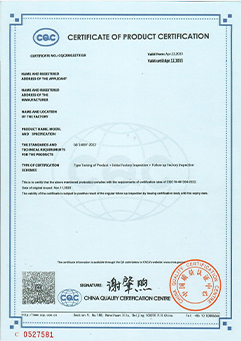Guidelines for Selecting and Installing Transfer Fuel Hoses in Automotive and Industrial Applications
Aug . 14, 2024 09:46 Back to list
Guidelines for Selecting and Installing Transfer Fuel Hoses in Automotive and Industrial Applications
Transfer Fuel Hose Importance and Applications
The transfer fuel hose is an essential component in the transportation and management of fuel—a critical resource for vehicles, machinery, and various industrial applications. This specialized hose is designed to safely and effectively transfer fuel from one location to another, ensuring that the flow remains efficient and secure. Understanding the importance and applications of transfer fuel hoses can help users make informed decisions when selecting and using these products.
Design and Construction
Transfer fuel hoses are engineered to withstand the specific challenges associated with fuel transfers. These hoses are typically made from durable materials such as synthetic rubber, thermoplastic elastomers, or reinforced PVC, which offer excellent resistance to abrasion, chemicals, and high temperatures. Additionally, many transfer hoses feature a reinforced construction, often with steel or fabric braiding, to provide added strength and flexibility, ensuring they can endure the pressures involved in fuel transfer.
The inner lining of a transfer fuel hose is specially formulated to resist the corrosive effects of various fuels, ensuring longevity and reliable performance. Notably, manufacturers design these hoses to prevent leakage, which can be both economically and ecologically detrimental. Employing advanced sealing technologies, transfer fuel hoses minimize risks associated with fuel spills and vapors, thus contributing to a safer working environment.
Applications
Transfer fuel hoses have a wide range of applications across different industries. Primarily, they are used in the automotive sector for moving fuel from tank trucks to storage tanks and gas pumps to vehicles. Their robustness and reliability make them an indispensable tool in fueling stations, where they facilitate the rapid and safe refueling of cars, trucks, and other vehicles.
transfer fuel hose

Beyond the automotive industry, transfer fuel hoses find applications in agriculture, construction, and marine sectors. In agriculture, they are used to transport diesel fuel to farming equipment, ensuring timely operations during critical planting and harvesting seasons. In construction, these hoses facilitate fuel supply to heavy machinery and generators, allowing projects to run smoothly without fuel interruptions.
In the marine industry, transfer fuel hoses are vital for bunkering operations, where large vessels need to refuel efficiently while docked. Specialized marine fuel hoses are designed to meet stringent regulations regarding marine fuels, ensuring safety and environmental compliance.
Maintenance and Safety
Proper maintenance of transfer fuel hoses is crucial to ensure they remain in optimal condition. Regular inspections should be conducted to identify signs of wear or damage, such as cracks, bulges, or leaks. Operators should also be mindful of the hose's age, as older hoses are more prone to failure.
It is important to follow the manufacturer's guidelines regarding usage and storage. Hoses should be stored in a cool, dry environment and protected from direct sunlight, which can degrade the material over time. Moreover, users must ensure that the correct type of hose is selected for the specific fuel being transferred, as different fuels can have varying effects on hose materials.
Conclusion
In summary, transfer fuel hoses are crucial for safe and efficient fuel transportation across various sectors. Their specialized design, durability, and extensive applications make them a vital component in numerous industries. By understanding the importance of these hoses and adhering to best maintenance practices, users can ensure reliable performance and safety in fuel transfer operations. As industries continue to evolve and grow, so too will the technologies surrounding transfer fuel hoses, further enhancing their effectiveness and environmental safety.
